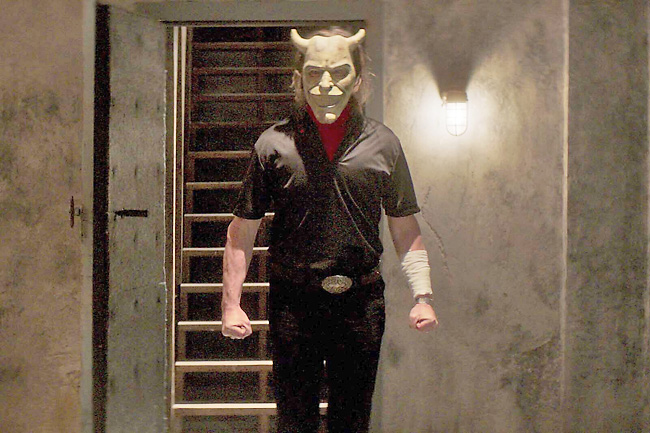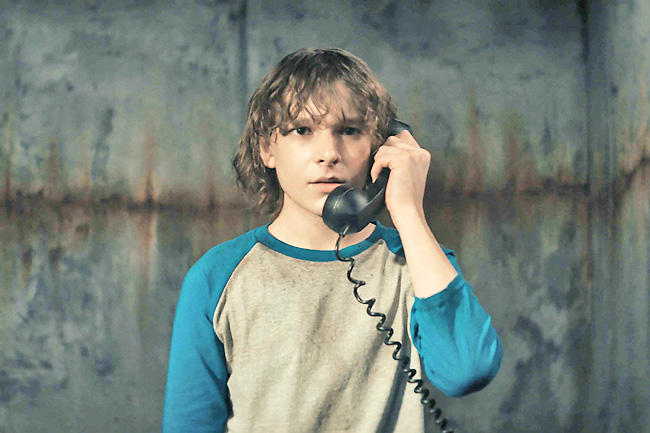Mark Kennedy
AP – Phones in serial killer movies are usually used by the deranged hunters to taunt the police or carefully tell victims how they’ll die.
But in The Black Phone it’s the other way around, fitting for a horror-thriller that flips many of the genre’s formula.
The serial killer at the heart of Scott Derrickson’s latest film is clueless about the chunky wall-mounted rotary phone in his sound-proof dungeon.
He tells his victims it hasn’t worked in years. They think otherwise: They use it to communicate with each other.
The kid-centric thriller The Black Phone is a very satisfying balancing act of a movie that has elements of supernatural, psychological suspense and horror but never falls heavily into a single camp. It also has one of the most satisfying ending of a horror-thriller in recent years.
The film – set in northern Denver in 1978 – follows 13-year-old Finney, played with real verve by newcomer Mason Thames. The filmmakers establish a grim mood right from the start, with wide-scale bullying, school-yard fights, bloody bruises and abusive parents. Add to this mix, the low-level buzz of homemade missing posters on walls.


There’s a serial killer prowling, nicknamed The Grabber. (In a nod to John Wayne Gacy, he’s a professional magician. And in perhaps another nod to The Steve Miller Band, he drives around in a black truck emblazoned with the word ‘Abracadabra’, fitting the lyrics “I wanna reach out and grab ya”). Five teen boys have vanished.
Finney – and his spunky younger sister, a fabulous Madeleine McGraw – are old enough to understand stranger abduction but still young enough to think that saying his name out loud is unlucky.
Finney knows a few of the victims but gets a first-hand knowledge when The Grabber – a confusing Ethan Hawke – nabs him and locks him in his basement, a space meant to hold humans. It’s carefully curated except for that black phone the killer says is disconnected, its wires cut. So why does it keep ringing for him?
Hawk is marooned as another one of those pure movie psychos, by turns gentlemanly and menacing. We’ve seen his like before, a chilling precision with enunciation and that relentless, bloodless toying with his victim. His only stand-out quality is a collection of creepy masks.
The Black Phone is in some ways a reteaming of the guys who made Sinister in 2012 – Derrickson and cowriter C Robert Cargill partnered with producer Jason Blum and Hawke for that one, too. This time, they’re leaning on horror royalty – the source material is a short story by Joe Hill, the pen name of Joe King, son of Stephen King.
The filmmakers, to my mind, lean a little too much on the supernatural to free Finney – does the phone really need to periodically beat like a heart? – but that’s me. The movie has a Stranger Things-meets-Room vibe and even namechecks a film deep in its debt: Texas Chain Saw Massacre.
The film’s tagline is ‘Don’t Talk to Strangers’ and it’s painfully wrong. While applicable to The Grabber, Finn learns that the voices on the other end of the black phone are his previous victims. They’re helping him, each call a way to outwit The Grabber and, put together, a way home safe. “Use what we gave you,” one disembodied voice counsels.
What makes The Black Phone stand out is how it perfectly captures what growing up was like in the often raw 70s and an utter respect for the world of kids. Every adult is either dismissive and distant – or downright murderous. At its centre is the fraternity of teen victims and the bond between sister and brother working against the twisted adult world. It will, uh, grab you.






